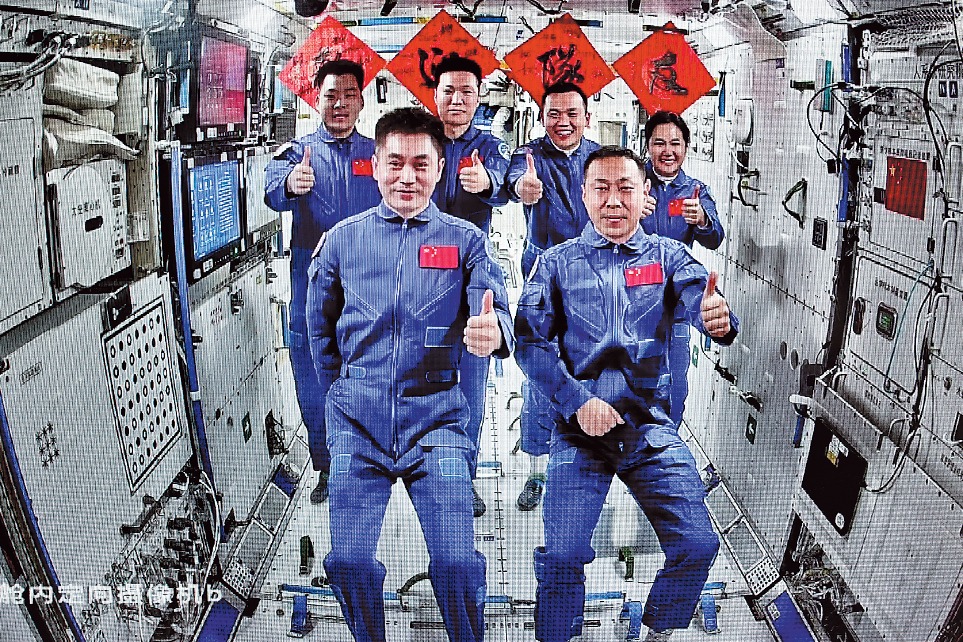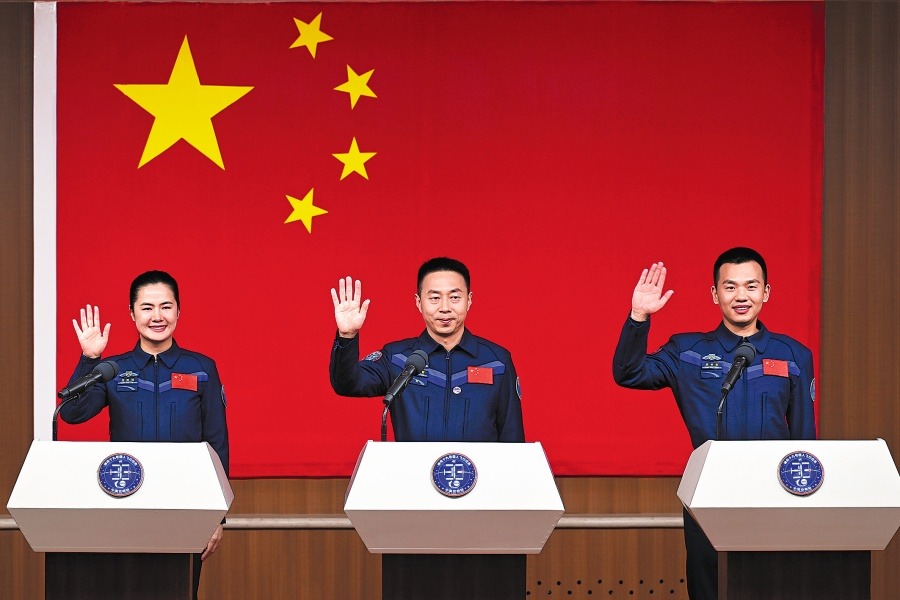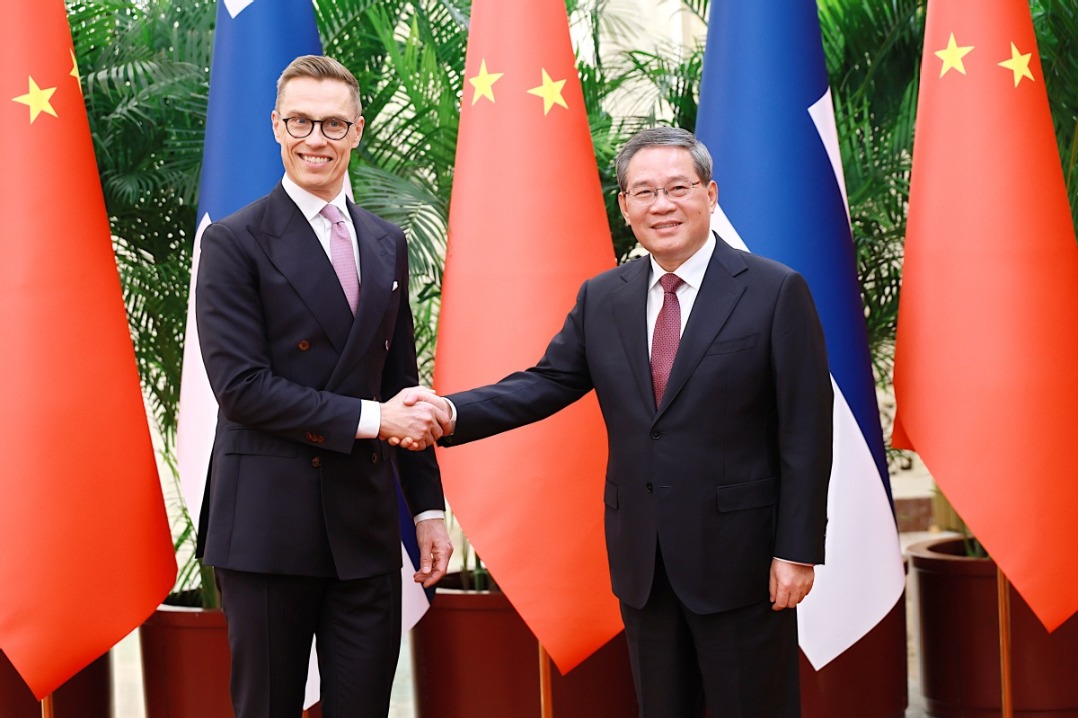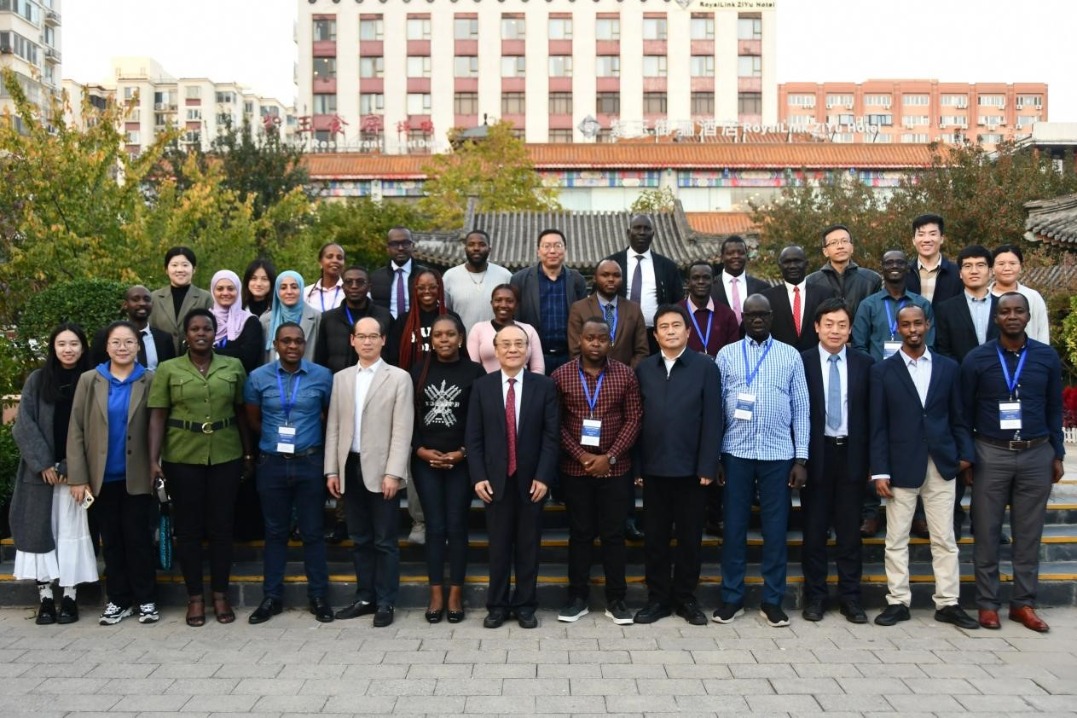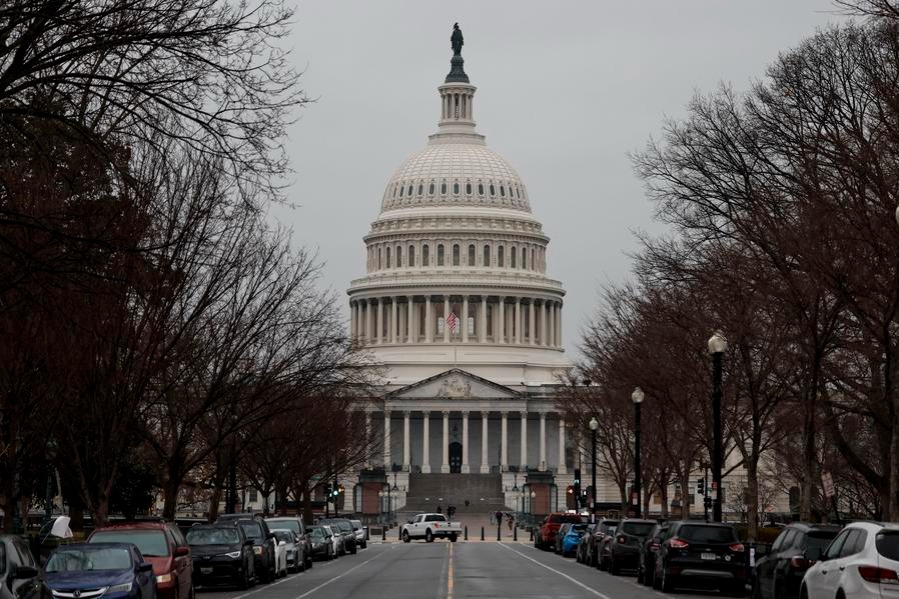Replacing win-lose with win-win


The summit in Kazan was a new chapter in global multilateralism, a major step toward a more powerful BRICS standing up for the Global South, and a true rules-based global order
One of the most hopeful developments in global politics this year was the announcement that China and India have struck a border deal which will ease tensions in the Himalayas. The deal will hopefully pave the way for more mutual trade and investments, resumed tourism and a better political dialogue.
Considering myself a friend of both India and China, I opened a bottle of champagne to celebrate. Maybe even traveling between the two countries will soon become easier if they reopen direct flights between Beijing and New Delhi, or between Mumbai and Shanghai. Better relations between the two Asian giants, which will dominate global politics in the 21st century, is a world-shaking positive development. It was no coincidence that this important deal was announced on the eve of the BRICS meeting in Kazan and followed up by a successful meeting, on the sidelines, between President Xi Jinping and Indian Prime Minister Narendra Modi.
A week before the India-China rapprochement, Sri Lanka, a small but strategically significant nation, expressed its desire to join the BRICS, yet another signal of the broad appeal and relevance of the group. Many developing nations have already applied for membership; and many more are expected to follow.
The appeal of BRICS extends far beyond the original five members — Brazil, Russia, India, China and South Africa. Last year's inclusion of major players such as Egypt, Ethiopia, Iran, the United Arab States and Saudi Arabia reflects the growing demand from nations across the Global South to join a multilateral institution that genuinely represents their interests and aspirations. Regional powers such as Turkiye have applied for membership, and Indonesia and Nigeria have expressed interest, further emphasizing the BRICS' widening influence.
The BRICS is becoming the forum for the Global South, embodying the aspirations of countries historically sidelined in global decision-making. This shift marks a departure from the global governance of the 19th and 20th centuries, dominated by the West, first by the colonial powers such as the United Kingdom and France, and later, by the United States. Now, in the 21st century, a new multipolar world is taking shape — one where multiple powers contribute to a much more prosperous and greener world, hopefully also a more stable and peaceful one.
What unites BRICS nations, despite their differences in governance, geography, and levels of development, is their shared vision of establishing a global order which works for all. The BRICS has evolved from a platform for secondary powers into a collective voice for the Global South, helping to establish fairer, more inclusive global rules.
The world is facing multiple challenges — climate change and environment degradation, poverty and pandemics, crises in Ukraine, Palestine, Lebanon and Sudan. To handle these issues, we must establish a true rules-based international order. While Western powers often champion this ideal, in practice, the application of such "rules" has been inconsistent and hypocritical. Take, for example, the stark contrast in how sovereignty is treated: the West rightfully defends Ukraine's sovereignty, yet the decades-long occupation of Palestine has been largely ignored. The US has been involved in over 80 regime change operations in other nations, assassinations of leaders, support for military coups or financial support to US friendly political parties. This must stop, or every power will claim a similar "right".
This double standard extends to the global economic order as well. When Europe and the US face competition from China's electric vehicles, they respond with tariffs and levies. Yet, throughout the 20th century, the US dominated global markets with its own industrial "overcapacity". Why, then, is China's "overcapacity" in green sectors such as electric vehicles and solar panels seen as a threat? China is, in fact, providing exactly what the world needs — affordable, scalable green technology essential to our collective future.
When "overcapacity" once drove growth in the West, why should the same logic not apply to China today? Rather than resorting to protectionism, the West should focus on fostering innovation and healthy competition. Just as China welcomed Tesla's gigafactory in Shanghai, Western nations should invite Chinese companies like BYD and CATL, Tongwei and Goldwind to invest in Europe and America. This would foster innovation and create win-win scenarios, benefiting all parties as they transition to a green economy.
Yet, some powers, particularly the United States, continue to view global competition as a zero-sum game. But this mindset only perpetuates a harmful cycle. To move forward, the US must shift its approach. Success should not be measured by slowing each other down or by one side triumphing over the other. Instead, resilience and cooperation — not dominance — should guide us toward a more peaceful and stable world.
The unipolar moment of US dominance after the Cold War was an exception, not the rule. In today's world, neither the US nor China or any other power can realistically achieve dominance. Innovation is unpredictable, and we cannot foresee how new technologies will reshape daily life or global conflicts. Ironically, the US' efforts to restrict Chinese companies from accessing advanced technologies could backfire, potentially stifling its own innovation while pushing developing countries to become more reliant on domestic suppliers and government support.
Over time the BRICS will empower the Global South by providing alternatives to such unfair trade practices.
What the world needs now is a spirit of collaboration. The US and the Global South must remain interconnected, learning from one another, and advancing together. Cooperation, rather than confrontation, will pave the way for true progress. Win-lose must be replaced with win-win.
The BRICS will grow into a core institution of the Global South. While only the United Nations can set rules that are accepted by all, it is now frozen in systems established in a world still dominated by colonial powers. It's also very process — rather than outcome-focused and very poorly led. The UN desperately needs urgent reforms and BRICS nations can provide major inputs. The BRICS, alongside initiatives such as the Belt and Road Initiative, the Shanghai Cooperation Organization and the Asian Infrastructure Investment Bank, is playing a crucial role in reshaping global governance.
Amid this global uncertainty, the BRICS emerges as a beacon of hope. It provides a powerful voice for the Global South, bringing together nations that, while diverse, share a common belief: a world governed by the same set of fair rules is one where all nations can prosper. Countries such as India, China and Brazil may not agree on everything, but they agree on this fundamental principle — no country should be above the rules, and only through fairness can we create more opportunities for shared prosperity, environmental sustainability, and lasting peace.
The BRICS summit in Kazan was a major step toward a more powerful BRICS standing up for the Global South. It was a step toward a true rules-based global order with mutual respect and real dialogue.
The author is vice-president of the Green Belt and Road Coalition and former executive director of the United Nations Environment Programme. The author contributed this article to China Watch, a think tank powered by China Daily. The views do not necessarily reflect those of China Daily.
Contact the editor at editor@chinawatch.cn.

















